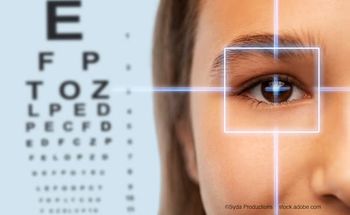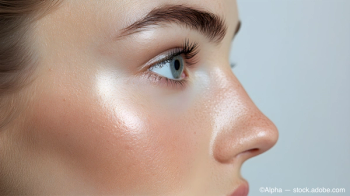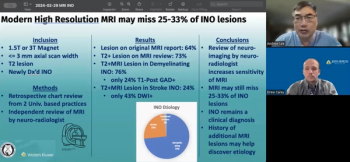
- Ophthalmology Times: November 15, 2020
- Volume 45
- Issue 19
Oh, the people we meet
Chief Medical Editor Peter McDonnell, MD, explains why the individuals that we make an impact on as physicians often never forget us.
It was about a year ago, in December 2019, a few months before
After emerging from passport control and baggage claim, I was met at the airport by a young man in his 20s who told me his name, and we started the drive into the city.
After driving a while, the driver turned to me and said, “You don’t remember me, do you?”
I took a longer look at him. Because I traveled a fair amount before the pandemic and would sometimes be introduced to dozens of new people each day, it is not uncommon for me to fail to remember someone I have only briefly encountered on an occasion. But it is always a bit embarrassing for me when someone knows my name while I draw a blank, as happened this time.
“I don’t expect you to remember me,” he said. “It was 10 years ago that I was in your office. I will tell you the story.”
As he began talking, it all came back.
When he was a teenager, the driver started developing headaches and visual symptoms. His father, a physician, brought him to see some physicians, including my ophthalmologist friend.
Previously by Dr. McDonnell:
The diagnosis was made quickly: He had a brain tumor that unfortunately was in a bad location.
The neurosurgeons could only partially remove the lesion and he would have partial relief of his symptoms but the remaining tumor would cause his death in the next year or 2.
My friend called me about the young man. Fortunately, another one of my friends was our chairman of neurosurgery and he (as far as I know) is the world’s expert in this problem.
Like many physicians do every day, I made a phone call and helped set up an appointment.
The teenager flew to Baltimore, Maryland, with his father and my friend. He underwent several neuroimaging studies, and was told complete resection of the tumor could be attempted. The surgery was performed and my neurosurgeon friend was very happy with the outcome.
A week or so after surgery, the teenager and his father stopped by my office before leaving for the airport.
Related:
Looking at the boy, I would never have guessed he had been ill let alone had recently undergone brain surgery. The neurosurgeons skillfully hid the incision behind the hairline and peeled the scalp back to expose his skull.
That was the last time I saw the youngster until he met me at the airport 10 years later, a big happy and healthy guy who was now a successful businessman.
The funny part of the story, he told me, was when he returned home after the surgery. All the boys in his class came to the airport to welcome their friend home.
As an expression of solidarity, they had all shaved their heads—they presumed the teen would be bald after his surgery.
“‘Thank you for coming to meet me, but what happened to your hair?’” he said to the other boys.
The man then told me he volunteered to pick me up at the airport because he felt I had saved his life, he would always be grateful, and he wanted to tell me this.
Related:
The truth is all I had done was connect him to the right surgeon, but it meant a lot that he had appreciated the small thing I had done to help.
We took a picture together, which I will always keep on my phone. Every time I look at it I am reminded, pandemic or no pandemic, how it is great to be a physician.
Articles in this issue
about 5 years ago
Evaluating scleral biomechanics to pinpoint root of accommodationabout 5 years ago
FA implant outperforms anti-VEGF in DR patients lost to follow-upabout 5 years ago
Challenges to topical drop adherence after cataract surgeryabout 5 years ago
Gene therapy surgical pearls for successful outcomesabout 5 years ago
Eliminating preop fasting leads to happier cataract patientsabout 5 years ago
Pearls for drawing patients back to your practiceabout 5 years ago
Haptic flanging reduces IOL dislocations after cataract surgeryabout 5 years ago
AMA steps up support for gender equity in medicineabout 5 years ago
Ophthalmic practices eye private equity investorsabout 5 years ago
Neuro-ophthalmology, NFL connect for a touchdownNewsletter
Don’t miss out—get Ophthalmology Times updates on the latest clinical advancements and expert interviews, straight to your inbox.





























